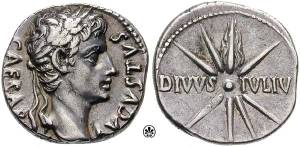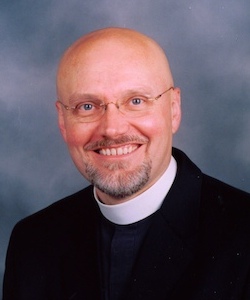Texts: 2 Samuel 6:1-5,12b-19 + Psalm 24 + Ephesians 1:3-14 + Mark 6:14-29
I was having a conversation about faith this past week with someone who asked me if you have to believe all the things we’ve heard Christians believe in order to belong. It’s a really common question, as you know, because many of you have asked me the same thing. I gave the sort of answer I think I usually give, which is to say that I don’t think Christianity is primarily about believing the right things, but about the practice of standing up for those beliefs which will put you at odds with a world that is always trying to convince you to remember your place, but lies to you about what that place is.
My fear about the role of beliefs in the experience of Christian faith, I continued, is that we so quickly turn them into criteria for inclusion, whether that be in the church on earth or in some concept of heaven we’ve developed that exists only for those who’ve proven themselves good enough at thinking and doing the right things to get in. We make belief the high bar you have to vault over to belong, though I am convinced that the message of grace is that there is no bar at all. By the grace of God, who created us in and for love, you already belong. You belong to yourself. You belong to your family. You belong to the land. You belong to God.
The extent to which we already feel as though we do not belong — that our bodies are not our own, that our place in our families is conditioned on becoming and remaining the right kind of person, that our experience of life on this earth is determined by fictitious lines drawn across the face of the planet that assign freedoms and resources to some and dictate hunger and poverty for others, that we doubt we could ever be known and loved by God — is a sign of the sinful brokenness of the world around us.
The conversation stuck with me long after it ended, and I kept thinking of other ways I might have answered the question. It occurred to me that another way of getting at the testimony I was trying to give would have been to say that for all the emphasis on what Christians say they believe, I think it’s just as important for us to name what we do not believe.

For example, our creeds teach us to say, “I believe in Jesus Christ, the only Son of God.” If we stopped right there and excavated that statement of faith from history, we would remember that in Jesus’ time the title “Son of God” was already taken by the emperor. Naming Jesus the Son of God wasn’t radical because it claimed divinity for a human being. It was radical because it said that imperial authority and divine authority were not one and the same. It was saying, “I do not believe that the emperor is God’s agent on this earth. I do not believe that wealth and power make right.”
Jesus was not the first person to stand up to wealth and power and call them to account. In this morning’s gospel we hear the story of the death of John the Baptist, who was killed for standing before King Herod and telling him that all his power and wealth did not entitle him to take whatever he wanted. Herod had taken his brother Philip’s wife, Herodias, a violation of the Jewish law that bound both the king and his subjects. In the great tradition of biblical prophets, John spoke truth to power and paid the price.
What I find tragic about this story, and convicting for me, is how the gospel of Mark describes Herod’s ambivalence about John the Baptist. Though he has John jailed for speaking out against him, Herod does not immediately kill him. He recognizes that John’s accusations are true, and that he is a righteous and holy man. “When he heard him, he was greatly perplexed; and yet he liked to listen to him.” (Mark 6:20) He is stuck in a conflict between his role and his soul.
In a former life, one in which I worked with teenagers for a living, we used to talk a lot about limits, and how essential they are for establishing safety. Children are constantly testing their environments for the invisible lines that divide acceptable from unacceptable. When adults fail to clearly establish those lines, children feel unsafe and act out in terrible ways.
Excessive power and wealth seem to make children out of grown people. The idea that “everything has a price” creates the illusion that wealth transcends limits with destructive consequences. The bible illustrates that principle with Herod’s desire for his brother’s wife, but we see the same dynamic playing out all around us every day. When employers exploit the labor of their workers because no one is watching, or because the laborers are undocumented, we see the lie that power and money make right at play. When states such as our own threaten to withhold pay from government workers and cut services to those who are poor, elderly, in recovery, or ill in order to preserve imbalanced systems of taxation that treat corporations like people and people like cogs in the machine, we see the lie that power and money make right at play. When nations use military might to keep the global balance of power tipped in favor of the relatively wealthy at the expense of the undeniably poor, we see the lie that power and money make right at play.
Like children, our employers, our states and nations, need limits in order for the world to remain safe for those who are crushed and exploited by the powerful and the wealthy. I think Herod, on some level, knew that. I think his attraction to John’s message exposes the fact that, beneath his title, beneath his power and wealth, he is still a human being whose conscious can be swayed. At least I think that’s the point the story is trying to make, and it’s a point worth remembering. Behind every corporate hierarchy, inside every state bureaucracy, there are people who are trying to balance the obligations of their roles with the dictates of their souls.
We know this because we are those people.
How often have we, in our own lives, found ourselves defending the organizations we work for at the expense of those they exist to serve? How often has the “greater good” been used as an excuse for the status quo? Can’t we all, on some level, relate with Herod — who knows that John is right, who is drawn to his message, but who capitulates to his wife in a demonstration of power and wealth in front of his guests. Haven’t we all, at some point, ignored the voice within us to appease the voices around us?
The reason we so often begin our worship with a confession of sin is because we know that we do. We do ignore the voice within to satisfy the voices around. We do maintain the status quo when change is needed. We do avoid the uncomfortable interaction, the difficult conversation, the formal complaint, the organized protest. We do overlook the harm we cause while still demanding justice from others, and we confess these things regularly so that we can stay alert for all the ways these patterns of complicity are daily recruiting us into a system of lies in which we do not believe.
We do not believe that our humanity is defined by our nationality.
We do not believe that justice and vengeance are the same thing.
We do not believe that food and shelter and health are commodities to be withheld.
We do not believe that violence is the precondition for safety.
We do not believe that our skin color or our native tongue determine our worth.
We do not believe that poverty is an acceptable price for progress.
We do not believe that anyone’s life is more legitimate than any other’s, but instead that we have all been adopted as children of God, heirs to the promise of grace and forgiveness, which is the assurance that the bar is not high, it is not even low. There is no bar. We all belong, to ourselves, to each other, and to God.
And we know there is such joy in this belonging that we cannot help but share it. Like David dancing in the streets and feeding the people, we are wanton in our love for those the world calls unlovely. Like John, we cannot help but speak truth to power.
This is why so many people have been gathering downtown on Mondays in a growing movement called “Moral Mondays Illinois” to protest the failure of our state government to take the actions necessary to protect and provide for the most vulnerable people in our communities. Last month our bishop, Wayne Miller, got arrested at one of the Moral Monday protests. In a letter explaining his decision to take part in the protests he said,

“The ideal that all are created equal is betrayed by the glacial advance of a new age of racism, classism, gender bias, spatial segregation, life-annihilating violence, and general disregard for the well-being of others. The ideal that all are afforded equal access to life, liberty, and the pursuit of happiness is betrayed by the unconstrained rise of an oligarchy of fabulously wealthy tycoons and corporations, to which the courts have granted civil rights without demanding civic responsibility in return …
It is therefore incumbent upon Christian leaders, not merely as a matter of civic responsibility, but as a matter of evangelical necessity, to speak and act in a way that places the Church clearly and unambiguously in community with the God who was betrayed by standing in solidarity with those … whose trust is being betrayed by government that has forgotten that it exists to defend the well-being of the vulnerable, the broken, and the marginalized, against the crushing force of unrestrained wealth and social privilege, even if this solidarity — this withdrawal of consent — leads to arrest and punishment.”
I will be gathering tomorrow morning at 10:30am at the James Randolph Center on LaSalle St downtown for the next Moral Monday protest, where at least 200 other people of faith are expected to be as well. My goal is not only to participate in the protest, but to listen to the voices and stories of those whose lives are placed in jeopardy by the failure of our elected leaders to govern wisely. I want to hear their stories first-hand so that I can share them with you and with others more accurately. I invite you to join me.
Paul writes to the Ephesians, “In him you also, when you had heard the word of truth, the gospel of your salvation, and had believed in him, were marked with the seal of the promised Holy Spirit; this is the pledge of our inheritance toward redemption as God’s own people…” (Eph. 1:13-14)
The word of truth is the witness of Jesus’ humanity in the face of the world’s inhumanity, the fact of his solidarity with all the poor and oppressed, the challenge of his non-violent confrontation with power, his life poured out for others, and finally the assertion that he is not dead. That power and wealth, that violence and empire, have not ended his life because it lives in us. It is our salvation. It is our inheritance. It is our song. It is our dance. It is our cry whenever we assemble to declare now the year of the Lord’s favor, the jubilee, the foretaste of God’s preferred future breaking into the present. That is what we believe.
Amen.